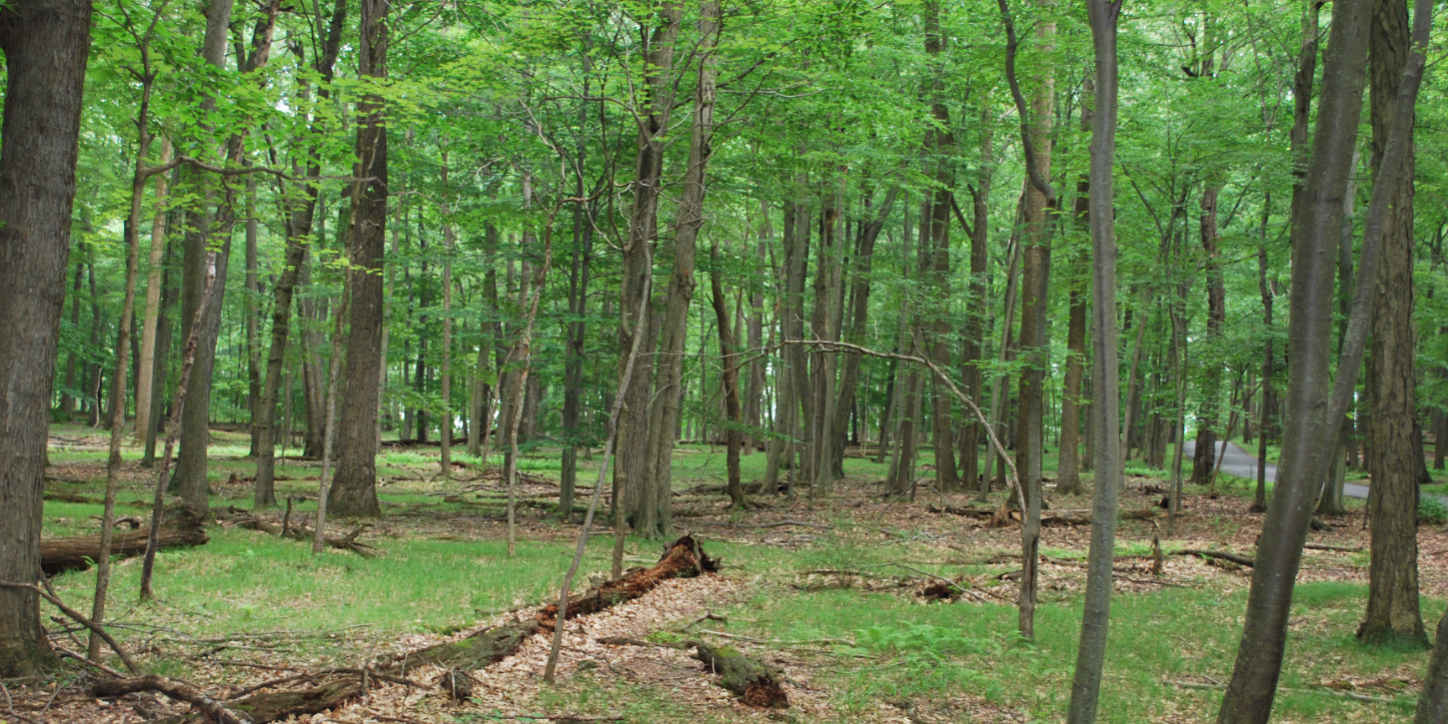Morristown National Historical Park (NHP) will receive $677,000 in funding from the Inflation Reduction Act for two projects that will address critical ecosystem restoration and climate resilience.
Morristown NHP’s forests are crucial to the health of ecosystems and surrounding local communities. However, forest health monitoring in eastern national parks has shown that the parks’ forests are rapidly changing and do not have enough tree regeneration in the form of seedlings and saplings to replace canopy trees as they fall or die. Both Inflation Reduction Act projects at the park are part of multi-park, landscape-scale efforts to address the causes of poor tree regeneration in Northeastern parks.
The projects are part of an overall $195 million investment from the Inflation Reduction Act announced February 27 to prepare parks across the country to be resilient to climate change. These investments are incredibly timely, as healthy ecosystems, wildlife and native plant habitats, and cultural resources are threatened by climate change and many other environmental challenges.
These projects infuse much-needed funding in putting people to work in addressing critical ecosystem needs to restore healthy and resilient park lands while benefiting communities surrounding parks.
The projects at Morristown NHP will focus on deer, invasive species removal and planting of native tree species. To aid in the regeneration of native tree species, the park will implement deer and invasive species management as outlined in its 2017 Vegetation and White-tailed Deer Management Plan and Environmental Assessment. Deer management actions in the Jockey Hollow and New Jersey Brigade areas will be taken in partnership with the US Department of Agriculture’s Wildlife Services agency and are pending approval from New Jersey Fish and Wildlife.
The invasive species project, in partnership with the Forest Stewards Guild, entails strategic removal of high priority invasive plants, followed by the planting of native tree seedlings that are adaptable to changing conditions. Taken together, the projects will reverse trends in forest loss and promote seedling resilience in Morristown NHP’s forests that have been damaged by insect pests and severe storms. The projects will make Morristown NHP’s forests more resilient to climate change and disturbances and help ensure that they exist in the future.
“These projects come at a critical time in the history of our nation and park as we look toward the United States’ 250th in 2026,” said Superintendent Thomas Ross. “Not only do we want to commemorate and reflect upon the past, but we also want to ensure a healthy natural legacy at the park for generations to come. These vital natural resource projects are a significant step in reestablishing a healthy native hardwood forest for future generations to appreciate, experience and enjoy.”
This announcement is a promise to future generations. Through the Inflation Reduction Act, the National Park Service is working to address the impacts of the climate crisis, including intensifying drought, wildfires, flooding and legacy pollution in national parks and other public lands. These resources will serve parks and communities across the United States with forward looking impact.
Through the Bipartisan Infrastructure Law and the Inflation Reduction Act, the Department of the Interior is implementing more than $2 billion in overall investments to restore our nation’s lands and waters, guided by a new restoration and resilience framework to support coordination across agency restoration and resilience programs and drive transformational outcomes.
Climate change is an overarching influence over national parks. This Inflation Reduction Act funding is a long-term opportunity to make significant investments in our nation’s lands and waters in the fight against climate change. This work will also advance America the Beautiful, the Administration’s initiative to restore and conserve 30 percent of lands and waters by 2030.
For additional information on Morristown NHP’s Vegetation and White-tailed Deer Management Plan, see:https://parkplanning.nps.gov/document.cfm?parkID=256&projectID=33415&documentID=82110 (See “Document Content” toward bottom of link.)
